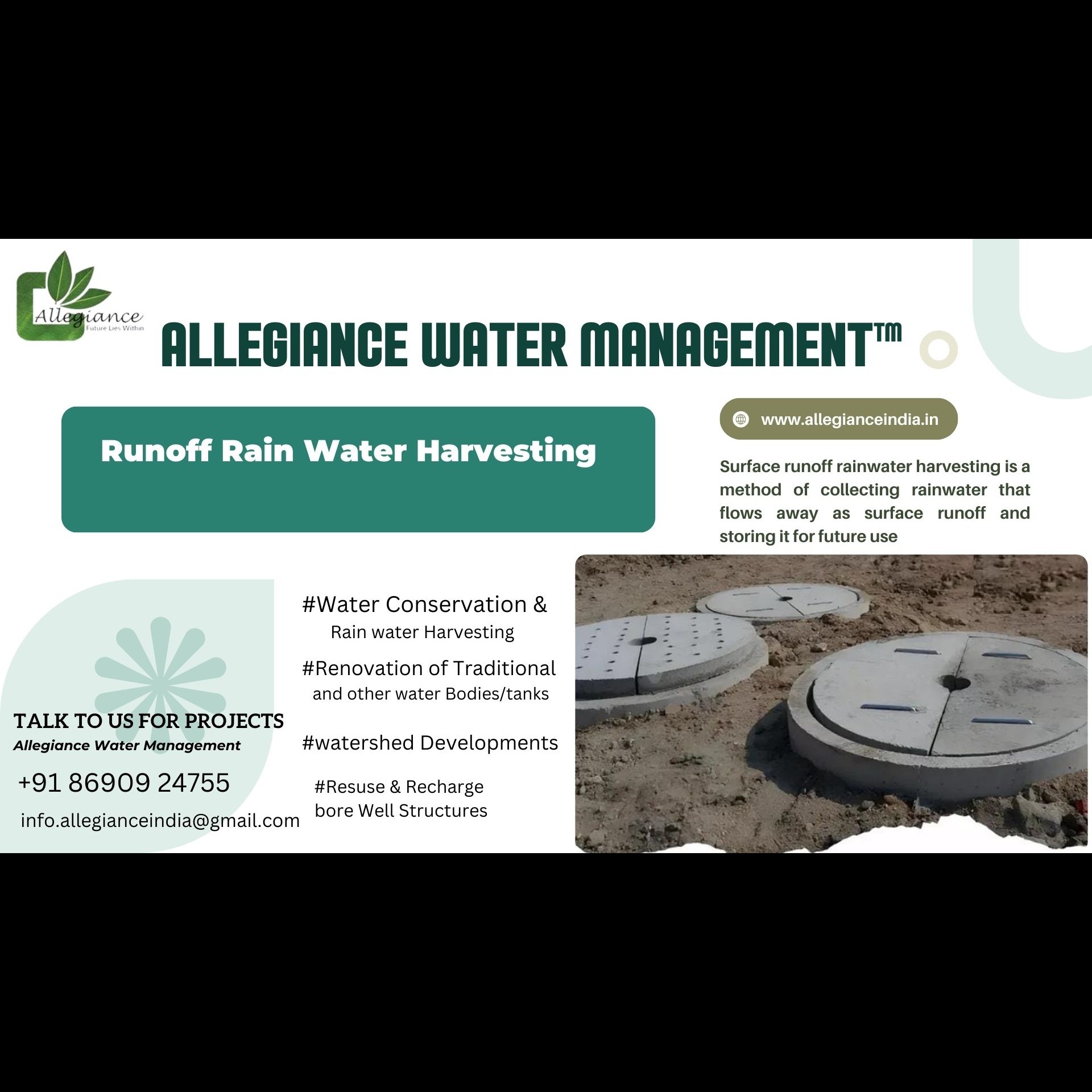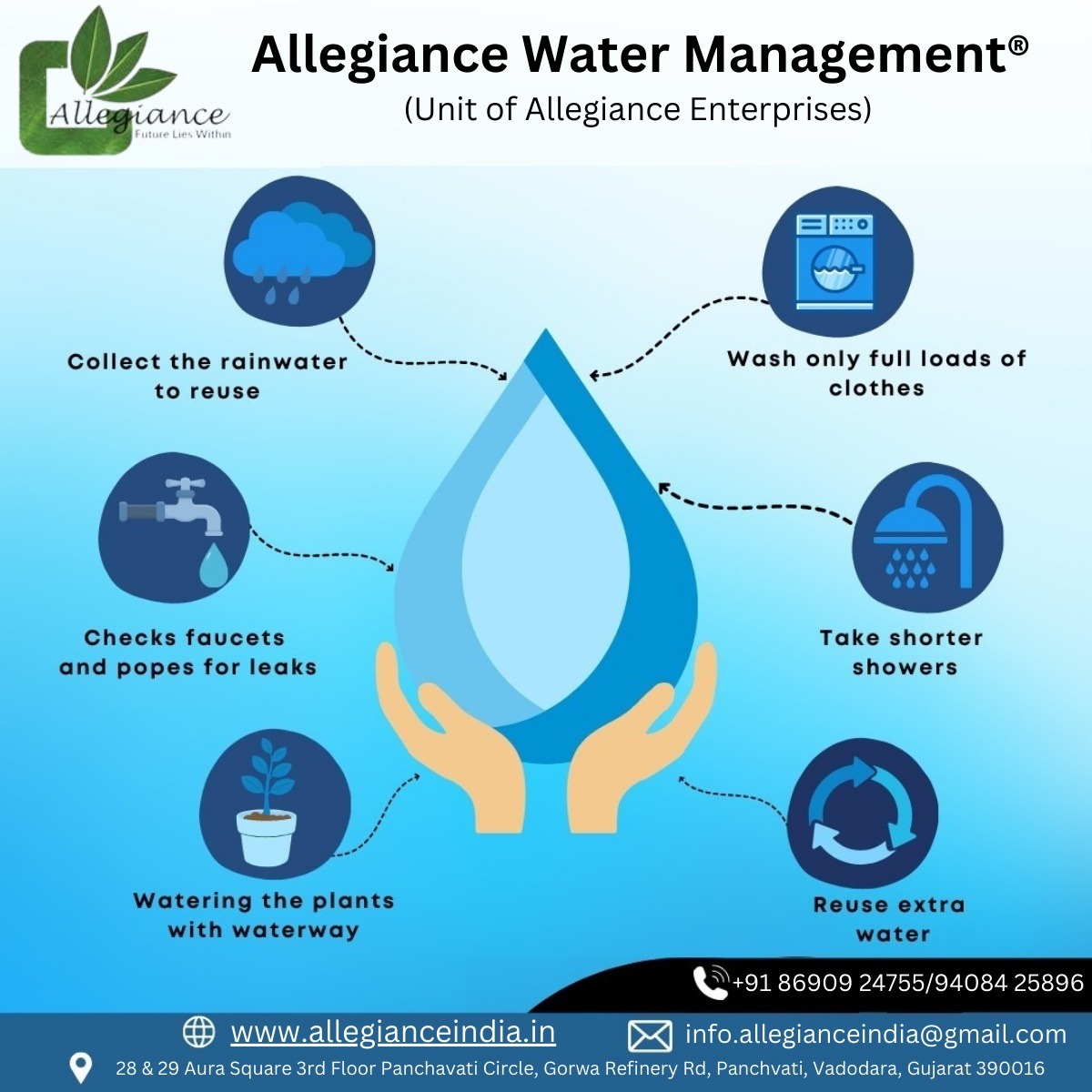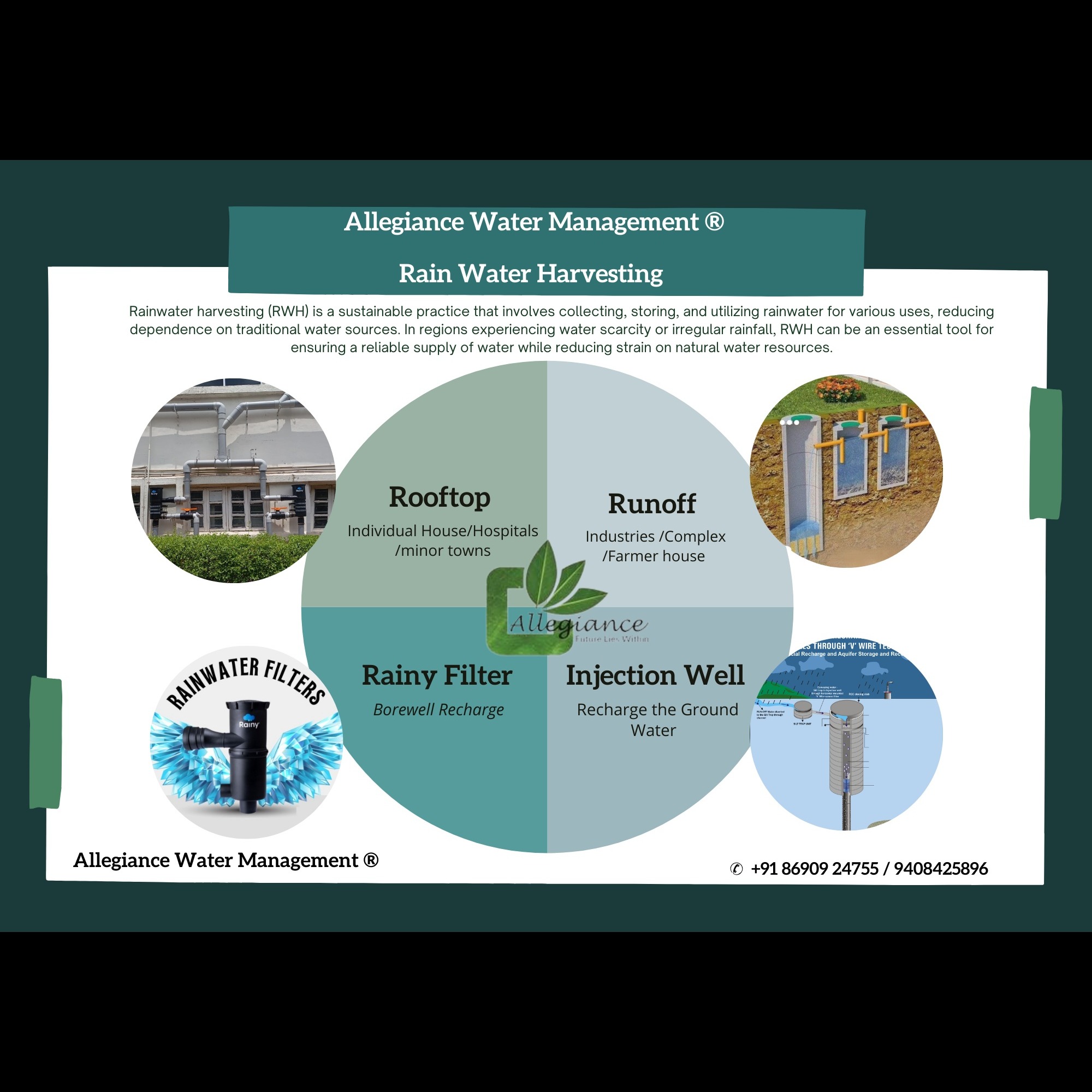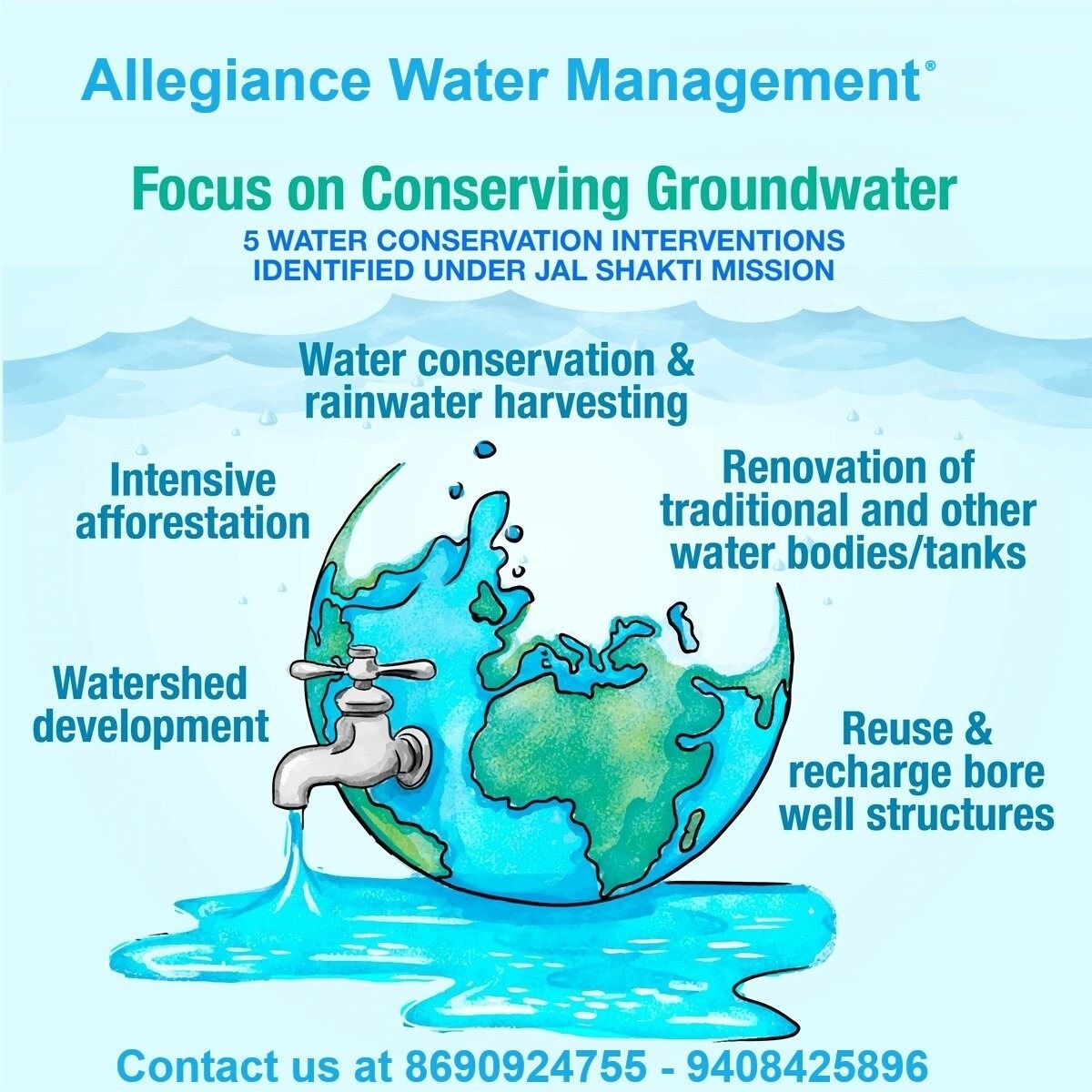
Allegiance Water Management
Rainwater harvesting is a basic system that can be possible with low-innovation, do not cost too much and is applicable even at a small-scale with a minimum of specific knowledge. The collected water can supplement the general water sources when they turn out to be scarce or are of low quality. It additionally gives a decent substitute in times of dry season or when the underground water level drops. This innovation is versatile to a more extensive assortment of conditions from wealthiest to the poorest societies, as well as in the wettest to the driest region.
In areas of low rainfall, the larger areas like landscapes, open fields, gardens, streets and roadways and other open places can be effectively used to collect the rainwater.
The tanks, ponds or lakes can be the best source to collect the rainwater to meet the requirements of the urban areas and revive the groundwater tables.
Stormwater Drains:
Stormwater drains in societies, if maintained well can be the basic and cost effective means for collecting rainwater.
Gutters:
These are the channels around the edge of a slanting rooftops to collect and transport rainwater to the storage tank. These Gutters can be made using galvanized iron sheets, PVC material, Bamboo or betel trunks.
Energizing of dugwells and abandoned tubewells:
In alluvial and hard shake zones, there are a large number of wells which have either gone dry or whose water levels have declined impressively. These can be revived specifically with rooftop run-off.
Settlement Tank:
Settlement tanks are used to remove sediment and other coasting polluting influences from water. A settlement tank is similar to an ordinary storage container having provisions for inflow, outpouring and flood. A settlement tank can have an unleveled base surface to permit standing water to permeate into the soil. Any container, with sufficient limit of capacity can be utilized as a settlement tank.
Service Tubewells:
In this case the rooftop runoff is not directly led into the service tubewells, to dodge possibilities of pollution of groundwater. Rather, water is gathered in the revive well, which is a temporary storage tank situated close to the service tubewell, with a borehole, which is shallower than the water table. This borehole must be given a casing pipe to keep the collapsing of soil. A channel chamber including sand, rock and stones is given to capture the polluting influences.
Recharge Pits:
A recharge pit is usually dug 1.5m to 3m wide and 2m to 3m deep. This boundary wall of the excavated pit is lined with a brick/stone wall with small openings at similar distances. The top area of the pit can be secured with a punctured cover.
Percolation Pit:
Percolation pits, one of the simplest and most effective means of harvesting rainwater. Designed on the basis of expected runoff, they are loaded with rocks or block jam and stream sand, secured with punctured solid pieces wherever essential.
Recharge Trenches:
A recharge trench is a persistent trench excavated in the ground and refilled with permeable media like stones, rocks or broken blocks. The length of the energize trench is chosen according to the measure of overflow anticipated. The revive trench ought to be intermittently cleaned of accumulated debris to maintain the intake capacity.
recharge troughs are set at the entrance of a residential/institutional complex. These structures are like revive trenches except that the excavated part is not loaded with channel materials. Keeping in mind the end goal to encourage rapid energize, boreholes are drilled at regular intervals in this trenc.
Altered infusion well
In this strategy water is not pumped into the aquifer but rather permitted to permeate through a channel bed, which includes sand and rock. An adjusted infusion well is generally a borehole, which is drilled to the desired depth depending upon the geological conditions. The annular space between the borehole and the channel is loaded with rock and compressor till it gives clear water. To prevent the suspended solids from entering the revive tubewell, a channel instrument is given at the top.
www.allegianceindia.in
Piezometer
Digital water Flowmeter
Groundwater Harvesting System
Digital water Level Recorder
DWLR - Telemetry
Rooftop Rainwater Harvesting
Rainy Filters
Keywords
case
mind
lakes
rocks
flood
ponds
brick
Bamboo
length
inflow
stones
gardens
aquifer
Gutters
streets
channels
entrance
dugwells
sediment
end goal
roadways
boreholes
block jam
provisions
landscapes
stone wall
Piezometer
compressor
structures
clear water
channel bed
stream sand
casing pipe
best source
urban areas
open places
low quality
open fields
water levels
requirements
betel trunks
basic system
larger areas
PVC material
annular space
driest region
Rainy Filters
Recharge Pits
desired depth
boundary wall
broken blocks
excavated pit
small openings
standing water
strategy water
low-innovation
rooftop runoff
collected water
channel chamber
punctured cover
intake capacity
permeable media
rooftop run-off
recharge troughs
DWLR - Telemetry
suspended solids
Settlement tanks
hard shake zones
Altered infusion
Percolation pits
Stormwater Drains
poorest societies
Recharge Trenches
channel materials
Service Tubewells
decent substitute
persistent trench
similar distances
regular intervals
slanting rooftops
adjusted infusion
collapsing of soil
groundwater tables
channel instrument
accumulated debris
abandoned tubewells
times of dry season
measure of overflow
transport rainwater
general water sources
geological conditions
institutional complex
areas of low rainfall
large number of wells
punctured solid pieces
galvanized iron sheets
unleveled base surface
temporary storage tank
Digital water Flowmeter
basis of expected runoff
ordinary storage container
possibilities of pollution
Allegiance Water Management
sufficient limit of capacity
Digital water Level Recorder
Rooftop Rainwater Harvesting
Groundwater Harvesting System
underground water level drops
coasting polluting influences
minimum of specific knowledge
extensive assortment of conditions
effective means of harvesting rainwater




